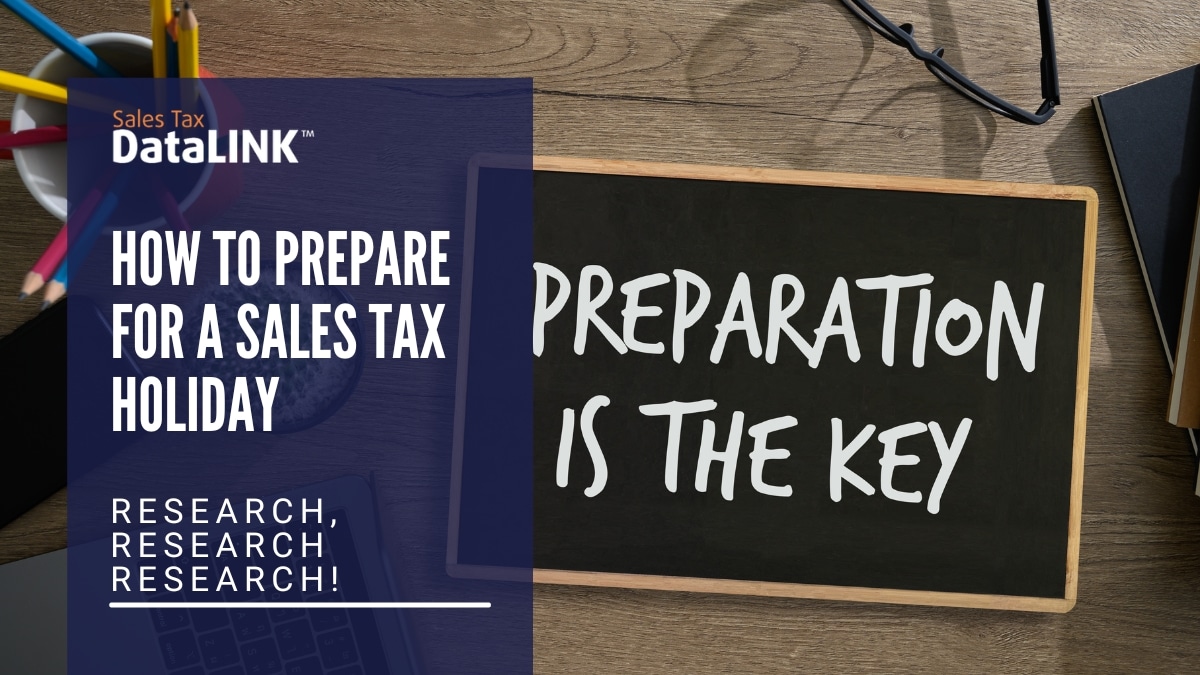As summer comes to an end back to school sales tax holidays are just around the corner. A sales tax holiday is just what it implies, a short-term exemption from state sales tax on products that would normally be collected on. The frequency of sale tax holidays differs between states that are prompted by different events, but nearly all states have some sort of exemption holiday for consumers. So how can your business prepare to correctly exempt certain products from sales tax? Actively preparing and planning can reduce the amount of stress your business may experience during one of these exemption weekends. By following these 5 steps you can operate effectively where you otherwise might not.
Know What Is Tax Exempt: Know not all items you sell will be tax-exempt during a sales tax holiday, what sales tax will apply depends on what jurisdiction you are in and what guidelines your state has provided.
It is essential that you research how your state is handling its sale tax holiday weekend and collect accordingly as rules will vary from state to state. Each state also has its own method of reporting sales tax exemption; some require specific reporting, while others do not. Record keeping can quickly become a headache for poorly prepared businesses. Review Inventory Needs. Make sure you have ordered enough products to meet projected demand on the sales tax weekend, especially seasonal items like back-to-school supplies. Failing to meet
demand will cost you both the potential revenue and damage customer relations. Even if rainchecks are provided to consumers, most states require that sales tax be paid upon redemption. Know The Rules. Policies concerning discounts, buy one get one free, gift cards, layaway, and returns vary between states during sales tax holidays and they can often be confusing.
Knowing whether or not tax exemption is provided for layaway when the last payment occurs on a sales tax holiday weekend can give you an edge if you inform customers of this before the holiday takes place. Using social media, such as your Facebook business page or your Twitter account, would be a cost-effective way to communicate with customers who are already interested in your business. Your state’s Department of Revenue website should be able to give you information regarding all of the above cases. Train Employees And Staff. Informed employees are more important than ever when unusual circumstances occur. Consumers will have questions and the faster and easier your staff can answer those questions the better off your business will be.
Take the time to make sure your employees know what is tax exempt and what is not, how discounts work, how buy one get one offer should be handled, and any other pricing options your store is currently offering are affected by the sales tax holiday. Your state Department of Revenue website provides a comprehensive listing of what is and isn’t tax-exempt, it is a good idea to make enough copies of the list so that there is one at every cash register. Reprogram POS Systems Most point-of-sales systems accommodate sales tax holidays. However, you will have to ensure that those overrides are in place so that when you open on a sales tax weekend you are ready for business




